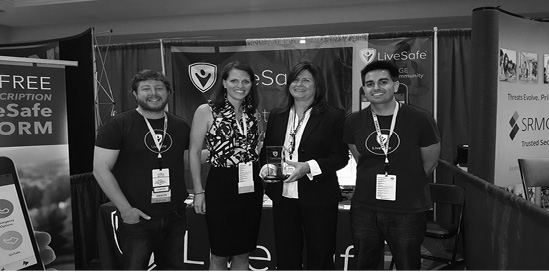The growth of technology, especially for the generation of students enrolled in college today, has been adapted to many areas of a student’s life, ranging from fitness improvement to study apps online.
Now, technology is expanding into the field of user safety, particularly for college students as demand for easy-to-use, accessible safety devices has risen.
In April, “TIME Magazine” ran a story titled “College Rankings Should Include Campus Safety” in which it was argued that, because safety is frequently cited as a top concern among both parents and incoming students, it should be a part of the ranking process along with academic prestige and athletics.
Student safety has become a hot topic on Wake Forest’s campus this week following an incident on August 29 when a man exposed himself to graduate students on Reynolda Trail. In the fall of 2015, there were six total recorded police reports of suspicious activities or people on campus. So far in the fall of 2016, there has been one report from the Reynolda Trail of suspicious activity, four reports of burglar alarms and six trouble alarms.
There are many, easily accessible resources for students to use in order to improve their own personal safety and the safety of others while on campus.
Livesafe, which was launched at Wake Forest in August of last year and was just recently launched at neighboring University of North Carolina at Chapel Hill’s campus this month, is an app which can be used to track the location of a friend walking somewhere alone.
“WFUPD is very impressed with the app. It is very practical and has easy to use features,” Sergeant Lesia Finney said. “It has multiple ways to report an incident. A person can live chat with police communications, submit a photo, leave a voice message or write a message. They can also remain anonymous, if they choose.”
Additionally, some students on Wake Forest’s campus have purchased the Sound Grenade, a device created by new startup company ROBOCOPP based out of California. The Sound Grenade is designed to emit a loud, 120 decibel sound when activated, scaring off potential attackers and bringing attention to the location of an attack.
“We think that technology can do so much more for personal safety. It’s insane that there are a million calorie counters and fitness trackers but nothing to get you help,” ROBOCOPP founder Sam Mansen said. “Life alert is marketed to seniors 60 years and older, and I don’t know why we’re only trying to keep seniors alive. I think we should be trying to keep everyone alive.”
Mansen cited his company’s success in reducing violence and crime and increasing campus safety at California State University at Eastgate. This year 5,000 Sound Grenades were handed out to the campus of 20,000 students, following a campaign last year in which only 150 were handed out.
“The power of sound and acoustics in general—it’s this tool where you can’t see anything but it can still affect people’s behavior,” Mansen said. “We use an alarm to get up in the morning; we use the power of sound everyday. If we are walking by a construction site, we tend to plug our ears and avoid it quickly. Sound is always affecting our behavior. To us, it’s kind of engineered magic because you can’t see it or feel it, but it’s a tool that is under utilized.”
Mansen elaborated on his and his company’s strong belief that “violence is not gender specific,” and neither should be any of the safety devices on the market.
Update: ROBOCOPP has been absorbed by BASU.com.










